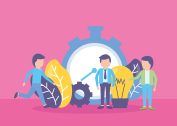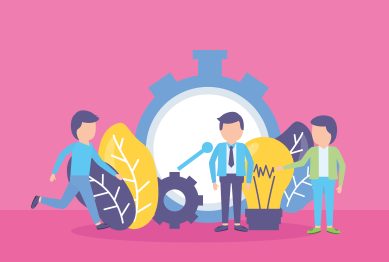Our minds often work based on preconceived notions and familiar patterns, but what if those very thoughts could be misleading us? This article explores how common assumptions shape our reality and why they might not always be true.

The Power of Familiarity: Why We Trust What We Know
Humans are creatures of habit, and our minds tend to gravitate toward familiar ideas. It’s easier for our brains to stick with what we already know than to venture into unknown territories. But the comfort of familiarity can often distort our perceptions of reality. In fact, research shows that the more familiar something feels, the less likely we are to question it (Kruglanski and Gigerenzer 2011).
Why Does This Happen?
Familiar thoughts don’t just feel comfortable—they also feel safe. The brain, as a high-energy organ, tends to favor efficiency. By sticking to what we know, we conserve cognitive energy, which is why we tend to favor familiar solutions over new ones, even when those solutions might be suboptimal. It’s a shortcut our brain uses to avoid overthinking, but sometimes that shortcut leads us down the wrong path.
Cognitive Biases That Shape Our Thoughts
Cognitive biases are systematic patterns of deviation from norm or rationality in judgment. They often occur because of the brain’s effort to simplify information processing. This can lead to errors in thinking, which can be misleading in decision-making processes. Some common biases include:
- Confirmation Bias: We tend to search for, interpret, and remember information that confirms our preexisting beliefs.
- Anchoring Bias: The first piece of information we receive serves as a reference point for future decisions, which can skew our judgments.
- Availability Heuristic: We rely on immediate examples that come to mind, which are often biased or incomplete (Chugh 2020).
These biases are the brain’s shortcuts to simplify decision-making, but they can sometimes lead us to conclusions that are far from accurate. When we are faced with new information, our biases might encourage us to ignore it in favor of what we already believe to be true.
The Truth About “Common Knowledge”
When we rely too heavily on familiar thoughts, we might fall prey to “common knowledge,” which often turns out to be wrong. For example, many people still believe that the Earth is flat or that humans only use 10% of their brains. These “facts” are ingrained in popular culture, but they are not supported by scientific evidence.
Why Does “Common Knowledge” Mislead Us?
Many of the beliefs we hold are passed down through generations or perpetuated by influential figures in society, such as media personalities or celebrities. These ideas often gain a sense of legitimacy simply because they’ve been repeated so many times. However, when we dig deeper, we often find that they are based on misinterpretations, outdated information, or even pure speculation.
For instance, many commonly accepted views about health, or technology are often based on outdated or incomplete information. The idea that a calorie is just a calorie is an example of a belief that oversimplifies the complexity of how our bodies process food. Similarly, the notion that “all fats are bad” has been proven to be false. Certain fats, such as unsaturated fats found in nuts and fish, are beneficial to our health. These oversimplifications can lead to misleading decisions in our personal lives.
Familiar Thoughts in the Digital Age: Are We More Misled Than Ever?
With the rise of the internet and social media, familiar thoughts and misconceptions spread faster than ever. Algorithms designed to show us content similar to what we’ve already interacted with reinforce our existing beliefs and preferences. This creates a feedback loop where we are continuously exposed to the same ideas, reinforcing the idea that these beliefs are universally true (Pariser 2011).
Echo Chambers and Filter Bubbles
The internet’s ability to tailor content to our preferences has created what are known as “echo chambers” or “filter bubbles.” These occur when individuals are exposed only to information that reinforces their current views, limiting exposure to opposing perspectives. As a result, people become more entrenched in their beliefs and less willing to entertain alternative viewpoints.
While these algorithms may seem helpful in curating content, they can also mislead us by presenting a distorted version of reality. When we are only exposed to ideas that mirror our own, it becomes harder to critically evaluate those ideas and consider other possibilities.
How to Break Free from Misleading Thoughts
- Question Your Assumptions: The first step in breaking free from misleading thoughts is to actively challenge them. Ask yourself, “Is this belief based on actual evidence, or is it just something I’ve heard before?” By examining your own beliefs and being willing to ask difficult questions, you can begin to uncover where those beliefs might be flawed.
- Seek Diverse Perspectives: Expose yourself to viewpoints that challenge your own. This can help you see the limitations of your own thinking and widen your understanding. It may feel uncomfortable at first, but the more you engage with different perspectives, the better equipped you’ll be to understand complex issues in a more nuanced way.
- Use Critical Thinking: Approach familiar thoughts with skepticism. Is the source credible? Are there other possible explanations? By applying critical thinking, you can evaluate ideas more objectively. Critical thinking helps you evaluate information in a way that goes beyond just accepting it at face value.
- Stay Open to Change: It’s important to remain open to new information. Just because something has always been a certain way doesn’t mean it’s the only way. The world is constantly changing, and so should our thoughts. When we close ourselves off to new ideas, we stop learning and growing. The willingness to evolve is essential to personal and intellectual growth.
The Cost of Holding on to Misleading Beliefs
When we hold onto outdated or misleading beliefs, the cost can be significant. Whether it’s in our personal relationships, our careers, or our health choices, clinging to familiar thoughts can prevent growth and lead to poor decisions.
Impact on Health and Relationships
For example, sticking with outdated financial advice—like the notion that investing in stocks is too risky for the average person—can prevent individuals from making profitable decisions. The same applies to health misconceptions, such as the idea that all fats are bad for you. These persistent but misleading beliefs can hold us back from making informed, positive changes.
Misleading beliefs about relationships can also prevent personal growth. For instance, believing that all relationships should be effortless can lead to frustration when they require hard work. Similarly, thinking that love should always feel intense and passionate can prevent us from appreciating the quieter, but equally meaningful, aspects of love.
Career Growth and Financial Decision-Making
In the workplace, common misconceptions about what it takes to succeed can limit your opportunities. The belief that you need to follow a traditional career path or that you must have a college degree to be successful can be misleading. By holding onto these ideas, you may miss out on other, equally viable paths that could be better suited to your skills and aspirations.
Conclusion: Let Go of the Familiar to Unlock New Possibilities
While familiar thoughts give us a sense of security, they can also limit our growth and understanding of the world. By recognizing the biases that shape our thinking and questioning what we accept as truth, we can make better decisions and embrace new opportunities. Don’t let familiarity keep you stuck in old patterns—challenge your thoughts, expand your horizons, and discover the truth beyond what feels familiar.
By opening yourself up to new ideas and challenging what you know, you give yourself the freedom to grow. Remember, sometimes the most groundbreaking discoveries are made when we break free from what’s familiar and embrace the unknown.
References
- Chugh, D. (2020). ‘The Cognitive Biases That Shape Our Decisions’. Harvard Business Review. Available at: https://hbr.org (Accessed: 30 July 2025).
- Kruglanski, A. W., & Gigerenzer, G. (2011). ‘The Influence of Familiarity on Judgment and Decision Making’. Psychological Science, 22(9), pp. 1072-1080. Available at: https://journals.sagepub.com (Accessed: 30 July 2025).
- Pariser, E. (2011). ‘The Filter Bubble: How the New Personalized Web is Changing What We Read and How We Think’. Penguin Books. Available at: https://www.penguinrandomhouse.com (Accessed: 30 July 2025).









